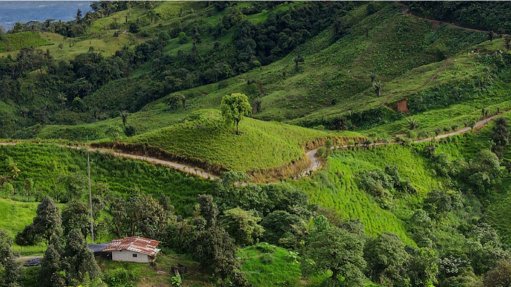Opinion: Why South Africa’s mining law facilitates Chinese investment
In this article, Malan Scholes Attorneys director and mining lawyer Hulme Scholes writes that South Africa's mining and empowerment legislation may benefit Chinese entities rather than discourage their investment in the South African mining sector.
In a recent statement during the Brics conference, the Chinese delegation opined that South African government procurement processes and black economic empowerment (BEE) policies are potential barriers to Chinese investment in the country. Contrary to this viewpoint, an analysis of South Africa's mining law reveals that Chinese entities enjoy unique advantages when investing, which do not even require citizenship, owing to historical discrimination against Chinese people as a group.
CHALLENGING ASSUMPTIONS
The assertion that BEE impedes Chinese investment prompts a comprehensive investigation into the matter. Contrary to this claim, an analysis of the legal landscape reveals that this purported impediment does not hold true for the mining industry. To understand this, one must first delve into the complexities of the origins of the transformation imperative underpinning South African mining law.
THE ROLE OF HISTORICAL DISADVANTAGE
At the heart of this issue lies the concept of the need to redress discrimination against Historically Disadvantaged Persons (HDPs), a cornerstone of the Mineral and Petroleum Resources Development Act (MPRD Act) and the Mining Charter. One of The MPRD Act's primary objectives is to promote transformation within the mining sector by ensuring active participation by HDPs. Importantly, the MPRD Act defines HDPs as individuals, communities, or categories of persons who suffered unfair discrimination prior to the South African Constitution becoming effective. This definition extends beyond nationality or citizenship and encompasses any persons or categories of person subjected to discrimination under the Apartheid regime. Belonging to a racial group historically discriminated against and not citizenship, is the prerequisite for qualification as an HDP.
CHINESE PEOPLE AS HISTORICALLY DISADVANTAGED PERSONS
While critics may argue that this interpretation runs counter to the spirit of the Mining Charter and the MPRD Act, the ordinary meaning of the words used must be given effect to and applied to the fact that Chinese individuals, irrespective of their citizenship status, are considered HDPs under the MPRD Act and the Mining Charter. This recognition stems from the historical reality that Chinese individuals faced discrimination during the Apartheid era, resulting in them being rightfully included in the definition of HDPs.
This interpretation finds reinforcement in a pivotal 2007 High Court Judgement which declared that South African Chinese citizens fall within the category of "Black People" as defined by the Employment Equity Act and the Broad-Based Economic Empowerment Act. It is noteworthy however that for the purposes of the MPRD Act, Chinese individuals are not required to qualify as South African citizens to be classified as HDPs.
IMPLICATIONS FOR APPLICATIONS FOR RIGHTS SUCH AS MINING RIGHTS, UNDER THE MPRD ACT
Chinese entities hold a distinct advantage when compared to other foreign entities when applying for such rights under the MPRD Act. All such applicants must facilitate the participation by HDPs in mining activities as a prerequisite for a successful grant of rights, an obligation discharged by adhering to the guidelines in the Mining Charter. Consequently, Chinese individuals and companies intending to apply for mining rights in South Africa, are not required to conclude transactions with South African HDPs to fulfill Mining Charter BEE requirements.
A comparison of the Codes of Good Practice for the mining sector's definition of "Historically Disadvantaged South Africans" with the HDP definition of the MPRD Act and the Mining Charter, reveals minimal disparities in substance. The reference to South Africans in the definition in the Codes, makes no significant difference.
THE FUTURE LANDSCAPE
Anticipating the Department of Mineral Resources and Energy's (DMRE) response to this application of the definition of HDP, poses intriguing questions, like those raised when the view is pronounced that white women are also HDPs as they were also discriminated against in pre-Constitution South Africa. The DMRE's stance could oscillate between scepticism and acceptance, influenced by both legal considerations and geopolitical dynamics between South Africa and China. Nevertheless, this interpretation of the definition of HDP could serve as an appealing prospect for the DMRE, potentially encouraging stronger ties with Brics partners and fostering increased investment in South Africa's mineral wealth.
For the same reasons, Indian persons who are not South African citizens, have the same advantages as they also qualify as HDPs for the purposes of the MPRD Act. Whether India or China takes advantage of this nuance in our mining laws in the context of the stronger ties occasioned by Brics, is the question to be ultimately answered. It is also likely that the Government will amend the definition of HDPs to limit it to South African citizens if such a trend gains momentum.
Comments
Press Office
Announcements
What's On
Subscribe to improve your user experience...
Option 1 (equivalent of R125 a month):
Receive a weekly copy of Creamer Media's Engineering News & Mining Weekly magazine
(print copy for those in South Africa and e-magazine for those outside of South Africa)
Receive daily email newsletters
Access to full search results
Access archive of magazine back copies
Access to Projects in Progress
Access to ONE Research Report of your choice in PDF format
Option 2 (equivalent of R375 a month):
All benefits from Option 1
PLUS
Access to Creamer Media's Research Channel Africa for ALL Research Reports, in PDF format, on various industrial and mining sectors
including Electricity; Water; Energy Transition; Hydrogen; Roads, Rail and Ports; Coal; Gold; Platinum; Battery Metals; etc.
Already a subscriber?
Forgotten your password?
Receive weekly copy of Creamer Media's Engineering News & Mining Weekly magazine (print copy for those in South Africa and e-magazine for those outside of South Africa)
➕
Recieve daily email newsletters
➕
Access to full search results
➕
Access archive of magazine back copies
➕
Access to Projects in Progress
➕
Access to ONE Research Report of your choice in PDF format
RESEARCH CHANNEL AFRICA
R4500 (equivalent of R375 a month)
SUBSCRIBEAll benefits from Option 1
➕
Access to Creamer Media's Research Channel Africa for ALL Research Reports on various industrial and mining sectors, in PDF format, including on:
Electricity
➕
Water
➕
Energy Transition
➕
Hydrogen
➕
Roads, Rail and Ports
➕
Coal
➕
Gold
➕
Platinum
➕
Battery Metals
➕
etc.
Receive all benefits from Option 1 or Option 2 delivered to numerous people at your company
➕
Multiple User names and Passwords for simultaneous log-ins
➕
Intranet integration access to all in your organisation





















